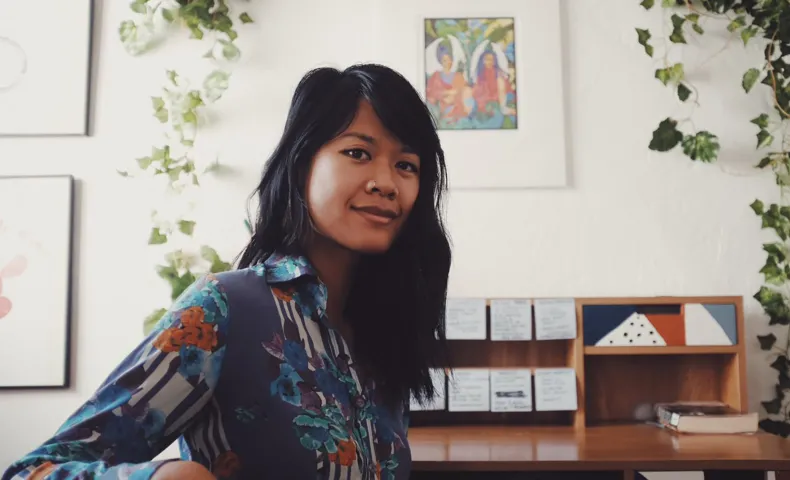
Natalie Bui
This interview was originally published in the article 5 Asian American Women Who Are Leading and Influencing Social Justice Movements in California.
Can you give us some background about what you do?
On top of my ever constantly changing role at Advancing Justice Los Angeles, I aim for my work to be deeply rooted in community. I am an illustrator, I’ve had clients like 18MR, Advancing Justice- ALC, and the United State of Women. It’s important for me to draw diverse voices and uplift marginalized communities under the AANHPI umbrella term. In addition, I also own a diversity, inclusion, and sexual harassment prevention consulting company, known as SHIFT. We go into university and work spaces to facilitate workshops on understanding why diversity work should matter to them, and have those really uncomfortable, challenging conversations.
How did you become involved in social justice and activism?
I got involved as I was questioning what it meant for me to be Vietnamese American. For the longest time, I ignored that part of my identity and even rejected it. But when I first encountered what it meant to be different, especially when I entered predominantly white spaces, it made me question why wasn’t my community here. Why weren’t they showing up, and what spaces were they actually fighting in? So as I was trying to unpack my Vietnamese American identity, I knew one of the best ways to do learn more about it was to work for the community.
What are you fighting to achieve in this world?
Gosh, that’s a tough one. I am fighting for those who still need to be seen and reflected in the spaces and communities they are supposed to call home. I am fighting for equity, not equality—and am fighting for us to move from empowerment to power.
Why is it important for women to be involved in the social justice movement?
It’s important for women, especially AANHPI women—because we can provide an intersectional lens to the different views, issues, and strategies on how to approach it. When we participate, we know how to uplift and advocate for one another to be in these spaces so we don’t marginalize our own communities further. It’s important for women to be involved in the social justice movement space because it gives an opportunity for folks to understand the language and tools in which to advocate for oneself. And when you work for yourself, you are working for your community as a whole.
Who inspires you? Do you have any idols?
Idolizing someone is something I try to avoid doing. But I get inspired by the women in my life who enter predominantly white spaces and are fighting for equitable representation. They fight different battles that are so emotionally laborious, and since they may be the only POCs in the room, are paving the way for other folks to enter to continue fighting for those equitable spaces.
If you could give one piece of advice to any young woman reading this who is hoping to create change one day and lead a movement, what would it be?
The process of understanding your cultural background and history is a painful but empowering lifelong journey, but once you uncover it, it will anchor you and guide you in everything that you do.